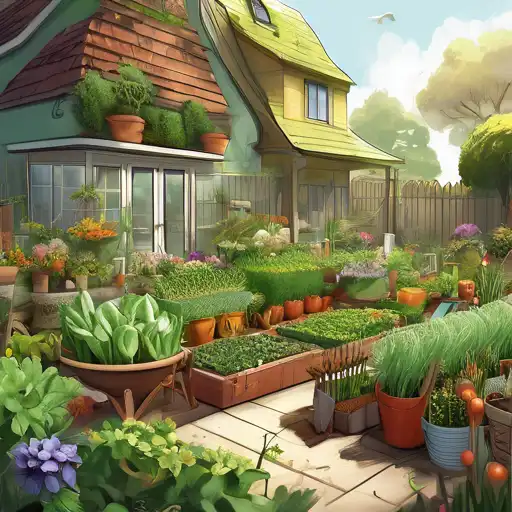Introduction to Home Gardening
Home gardening is a rewarding hobby that not only beautifies your space but also contributes to your health and the environment. Whether you have a sprawling backyard or a modest balcony, starting a garden is within everyone's reach. This guide will walk you through the essentials of home gardening, from selecting the right plants to harvesting your own produce.
Choosing the Right Plants
Before you dig in, it's crucial to choose plants that are suitable for your climate and space. Consider starting with easy-to-grow vegetables like tomatoes, lettuce, and herbs if you're interested in edible gardening. For ornamental gardens, perennials such as lavender and coneflowers are great for beginners.
Preparing Your Garden Space
Location is key in gardening. Most vegetables and flowers require at least 6 hours of sunlight daily. Ensure your garden has good drainage and is protected from strong winds. Raised beds or containers can be excellent alternatives if you're dealing with poor soil or limited space.
Soil Preparation and Planting
Healthy soil is the foundation of a thriving garden. Test your soil to understand its type and nutrient levels. Amend it with compost or organic matter to improve fertility. When planting, follow the spacing guidelines on seed packets or plant tags to avoid overcrowding.
Watering and Maintenance
Consistent watering is vital, especially during the early stages of growth. Early morning is the best time to water your plants to reduce evaporation and fungal diseases. Mulching can help retain moisture and suppress weeds. Regularly check for pests and diseases, and opt for organic solutions whenever possible.
Harvesting and Enjoying Your Garden
Harvesting at the right time ensures the best flavor and nutritional value. For leafy greens, pick the outer leaves first to allow the plant to continue growing. Enjoy the fruits of your labor by incorporating fresh produce into your meals or sharing with friends and family.
Advanced Tips for Home Gardening
Once you've mastered the basics, consider exploring advanced techniques like companion planting to naturally deter pests, or installing a drip irrigation system for efficient watering. Composting kitchen scraps can also enrich your soil and reduce waste.
Conclusion
Home gardening is a journey of learning and growth. With patience and care, you can transform any space into a lush, productive garden. Remember, every gardener faces challenges, but the rewards of fresh air, exercise, and homegrown food are well worth the effort.
For more gardening tips, check out our gardening tips section or explore our organic gardening guide to take your garden to the next level.
